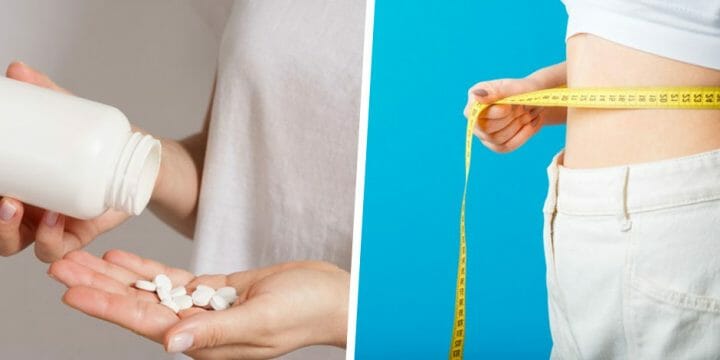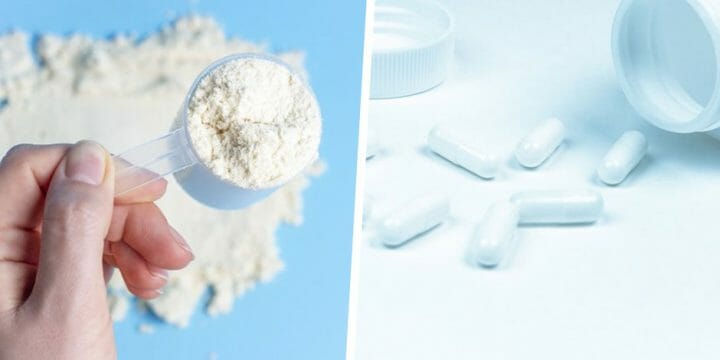Case studies show that caffeine overdose can lead to major outcomes and, in rare instances, even death. This shows that even though helpful, caffeine is still a drug, and too much caffeine can cause various side effects.
As a certified personal trainer, after sifting through relevant scientific papers and following that with an in-depth interview with my physician, I decided to gather all the potential dangers of caffeine usage in this article.
Here’s what you need to know.
Quick Summary
- The side effects of caffeine include a range of symptoms from mild, such as headaches and anxiety, to more severe effects, like high blood pressure and chronic insomnia, when consumed excessively.
- The article discusses both short-term and long-term side effects of caffeine, ranging from mild symptoms like headaches to serious conditions like chronic insomnia.
- EFSA finds no increased risk of major heart diseases with habitual caffeine intake up to ~ 400 mg/day.
- Personally, I believe moderation is key in caffeine consumption to avoid the negative health impacts highlighted in the article.
Caffeine Side Effects

According to a 2018 study on the PubMed website, consuming caffeine in low-to-moderate amounts is generally safe for most people, though caution is advised due to its potency as a stimulant [1].
Most often, side effects occur when consuming too much caffeine (we’ll discuss the adequate dosage later).
Depending on the effect’s duration and type, we can separate them into short-term and long-term.
Let’s see those effects closer.
Short-term Side Effects
As an occasional caffeine consumer myself, I can attest to the prevalence of short-term effects. I've personally experienced mild symptoms like a flushed face after just a single cup of coffee.
They will most likely happen to individuals who aren’t used to caffeine, as their bodies will react differently to what’s typically considered a moderate dose.
However, regular consumers may also experience these side effects when they take more than usual.
An article on the Libert Pub website from 2019 indicates that the severity of caffeine's effects, ranging from mild symptoms like a flushed face to serious conditions like a fast and irregular heartbeat, is often dose-dependent [2].
Given that over 90% of U.S. adults consume more than 200 mg of caffeine daily, often exceeding the amount in two 6-ounce cups of coffee, it's not surprising that side effects frequently occur when consuming too much caffeine.
Here’s the list of the potential short-term side effects:
- Headaches
- Anxiety
- Flushed face
- Insomnia
- Frequent urination
- High blood pressure
- Irritability
- Muscle tremors
- Upset stomach
- Fast or irregular heartbeat
As we mentioned earlier, these effects have a short lifespan and, unless you’ve taken a very high dose, won’t lead to serious health complications (The FDA stated in 2020 that consuming 1200 mg of caffeine in a short period can be lethal, highlighting the risks of excessive intake) [3].
Long-term Side Effects

EFSA's review suggests that habitual caffeine intakes, particularly not exceeding ~ 400 mg/day, are not associated with an increased risk of stroke, coronary heart disease, and heart failure, though overconsumption might lead to chronic insomnia and other long-term side effects [4].
However, most commonly, regular caffeine intake will cause you to develop caffeine dependence.
Caffeine dependence manifests as both physical and psychological addiction.
You can become mildly addicted to caffeine by regularly drinking 2 - 4 cups of coffee a day (350 mg).
This often causes people to experience withdrawal symptoms even after several hours without an expected dose of caffeine (for people who regularly consume caffeine in large amounts) [5].
Caffeine withdrawal symptoms include:
- Headache
- Nausea
- Poor mood
- Mental fog
- Lightheadedness
So, how can you stay within the safe range?
How Much Is Too Much?

In my experience, sticking to about 200 mg of caffeine daily, equivalent to 1 - 2 cups of coffee, has been the sweet spot for staying alert without overdoing it. This amount seems to enhance mood and cognition without the adverse effects.
And according to the aforementioned FDA document, a dose of up to 400 mg of caffeine daily appears safe for most healthy adults. That’s roughly the amount of caffeine in 10 cans of cola, four cups of brewed coffee, or two energy drinks.
However, the caffeine content in these beverages varies widely, especially in energy drinks [6].
The optimal dose still depends on your caffeine sensitivity and how much caffeine you typically consume daily.
Keep in mind that depending on some genetic idiosyncrasies, caffeine intake might need to be severely limited or entirely avoided [7].
Categories at Risk

Even though there are no official FDA recommendations on how much caffeine children should consume, the general consensus is that children should avoid caffeine intake altogether.
However, Canada recommends limiting caffeine to no more than 2.5 mg per 2.2 lbs of body weight for children under 18 [8].
Women who are pregnant, trying to become pregnant, or breastfeeding should limit their caffeine use to less than 200 mg a day (one and a half 8-ounce cups of coffee) as caffeine affects important pregnancy parameters like blood pressure and heart rate [9].
Situations in Which You Should Be Cautious
You should be careful if you take certain medications since caffeine can alter their effects and decrease or increase how much medicine is absorbed [10].
The most common interaction happens with the following medications:
- Migraine medications
- Antibiotics
- Cancer medications
- Thyroid medications
- Anticoagulants
- Blood pressure drugs
- Asthma medications
- Antidepressants
- Sedatives
- Estrogen
- NSAIDs
Caffeine may also interfere with some dietary supplements, so it’s a good idea to speak with your pharmacist or doctor if you take any medications or supplements.
"To get the benefits of caffeine without undesirable effects, conduct an honest assessment of your sleep, energy levels and other factors that might be affected, and reduce your intake if needed."
- Jared Meacham, Ph.D., RD, CSCS, Registered Dietitian, Fitness Professional & Educator
How to Curb Your Intake?

To effectively curb your caffeine intake, gradually reduce consumption to minimize withdrawal symptoms.
When I decided to reduce my caffeine intake, persistence was key. I gradually decreased my consumption, which helped me avoid the harsh withdrawal symptoms I'd heard about from others.
To break, or curb your caffeine habit, try these approaches:
- Keep track of how much caffeine you ingest - Read the labels of foods and beverages you consume, as a wide array of products contain it (i.e., over-the-counter pain relievers).
- Taper off the caffeine - Choose a smaller cup of coffee or drink one less caffeinated drink a day. Unlike quitting cold turkey, the body will get used to the lower levels of caffeine and alleviate potential withdrawal effects [11].
- Go decaf - Try ordering decaffeinated coffee, switching your energy drink for a soft drink, or a cup of tea for herbal. Also, drink more water instead of caffeinated beverages to help you keep your energy levels and mood high [12].
- Switch to a healthy lifestyle - Eat more whole foods filled with nutrients and start being more active to increase mental concentration, rev up energy levels, and improve sleep quality [13].
“Don’t cut out caffeine completely all of a sudden because then you may experience some bad withdrawal syndromes."
- Dr. Nicole Clark, Neurologist
You should try out these tips and find what works best for you.
Related Articles:
FAQs
Does Caffeine Cause Depression?
No, caffeine doesn’t cause depression. However, for people who are sensitive or have too much caffeine, there may be an indirect link, as caffeine-induced serotonin levels can fall, leading to crashes or interfering with sleep quality.
Is It Ok to Drink Caffeine Every Day?
Yes, it’s ok to drink caffeine every day as long as the dose doesn’t exceed the recommended 400 mg. It’s the amount not generally associated with dangerous and harmful effects on the body.
What Is the Historical Use and Cultural Significance of Caffeine?
Caffeine has been consumed for centuries, with its origins tracing back to ancient civilizations, where it was prized for its stimulating effects. Different cultures have incorporated caffeine into social rituals and traditional medicines, highlighting its integral role in human history.
How Does Caffeine Affect Different Age Groups?
Caffeine's effects vary significantly across age groups; adolescents may experience heightened sensitivity, adults often develop a tolerance, and the elderly might face increased risks of side effects due to slower metabolism. It's important to consider age-related physiological changes when assessing caffeine's impact.
What Is the Impact of Caffeine on Mental Health Disorders?
Caffeine can exacerbate symptoms in certain mental health disorders, such as increasing anxiety in those prone to panic attacks or disrupting sleep patterns in depression. However, in moderate amounts, it may also improve focus and alertness in some individuals.
How Do Genetics Influence Caffeine Sensitivity and Metabolism?
Genetic factors play a significant role in determining an individual's sensitivity to caffeine and the rate at which their body metabolizes it. Variations in specific genes can lead to differences in how people experience caffeine's effects and their risk for potential side effects.
What Have Long-Term Studies Revealed About Caffeine Consumption?
Long-term studies on caffeine consumption suggest that moderate intake can have beneficial effects on cognitive health and longevity, but excessive consumption may increase the risk of certain health issues. These studies highlight the importance of balance and moderation in caffeine consumption over time.
References:
- https://pubmed.ncbi.nlm.nih.gov/28603504/
- https://www.liebertpub.com/doi/10.1089/jcr.2013.0016
- https://www.fda.gov/consumers/consumer-updates/spilling-beans-how-much-caffeine-too-much
- https://www.efsa.europa.eu/sites/default/files/event/documentset/150305-p11.pdf
- https://www.ncbi.nlm.nih.gov/books/NBK430790/
- https://www.cspinet.org/caffeine-chart
- https://pubmed.ncbi.nlm.nih.gov/27702941/
- https://www.canada.ca/en/health-canada/services/food-nutrition/food-safety/food-additives/caffeine-foods.html
- https://www.nih.gov/news-events/news-releases/moderate-daily-caffeine-intake-during-pregnancy-may-lead-smaller-birth-size
- https://www.hindawi.com/journals/bmri/2020/7909703/
- https://www.bmj.com/content/359/bmj.j5024
- https://journals.plos.org/plosone/article
- https://www.mdpi.com/2072-6643/12/1/228
About The Author
You May Also Like






